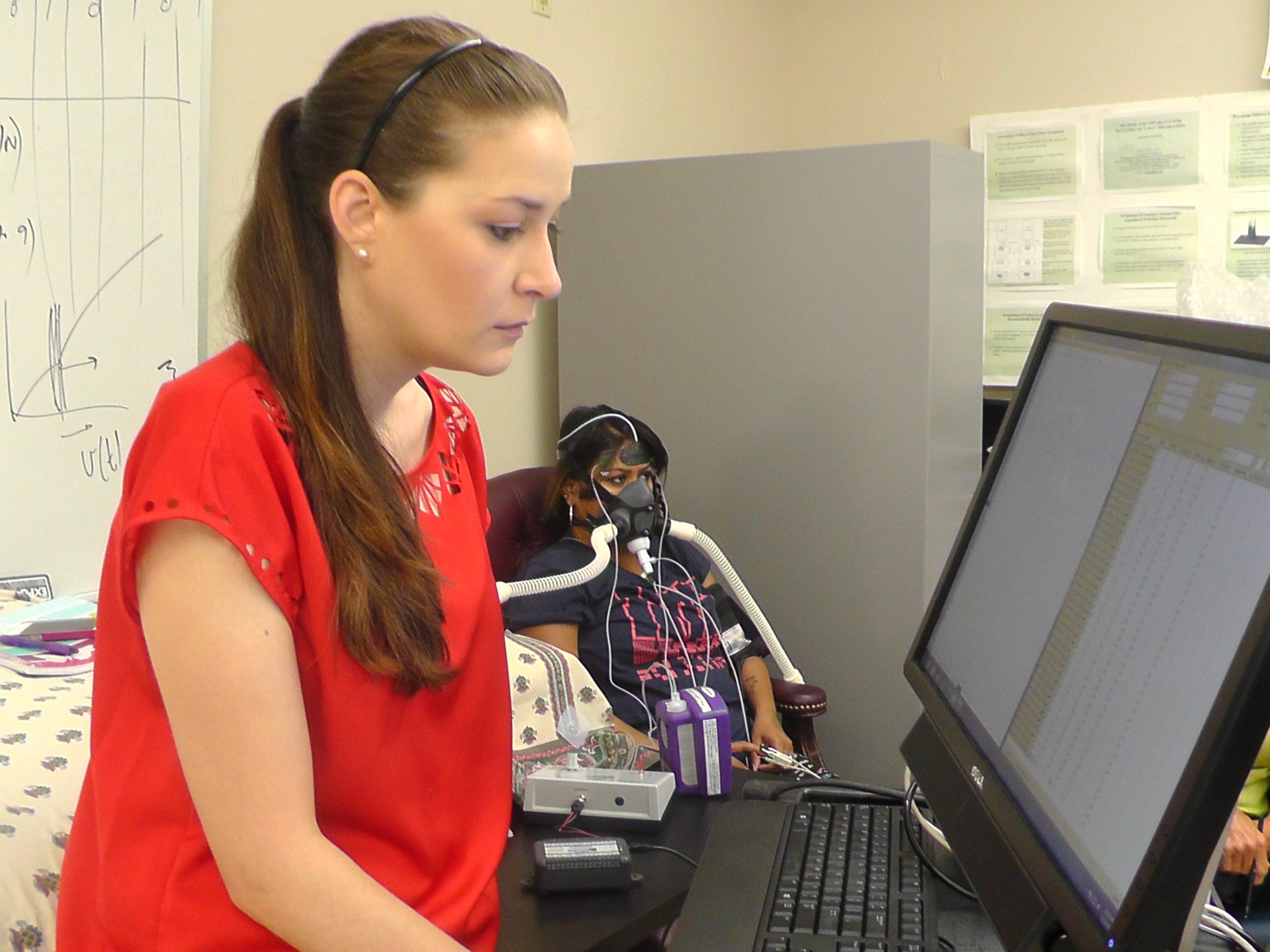Diving into concussion research
Likitha Somasekhar, a biomedical engineering master’s student at Florida Institute of Technology, sat in an oversized office chair, looking up from behind a modified SCUBA mask as she inhaled an air mixture containing five percent carbon dioxide. She nodded, indicating she was doing well, and continued to look around the room, breathing slowly and steadily.
Somasekhar is one of 15 students participating in the early stages of an experiment being conducted by Florida Tech biomedical engineering professor Kunal Mitra.
Mitra, alongside neurosurgeon Isabel Richmond and John Borgos, president of a research organization called Brain Check Medical, received more than $90,000 from the National Science Foundation to develop a method for testing one of the major effects of a concussion – alteration of blood flow to the brain.
One of the challenges in studying the effects of a concussion is finding suitable subjects to observe — researchers can’t just take measurements from someone, give them a concussion and measure the difference. So, instead, Mitra and his team developed a system using a modified SCUBA mask, with parts created using the 3D printers available in the Electronic Support Lab at Florida Tech, which allows subjects to breathe various combinations of oxygen and carbon dioxide to look at changes in vital signs. During the experiment, Richmond oversees the blood pressure, heart rate, pulse, and other important measurements to ensure the students participating are not experiencing any undesirable symptoms.
The researchers hope that by comparing the data from before and after the carbon dioxide, they’ll have some insight into how the body copes with this decrease in oxygen, giving them more information about the long-term effects of concussions and similar brain injuries.
In addition to the scientific contributions, the project is also providing a hands-on research experience for many students. In addition to the students who are participating as subjects, Dr. Mitra enlisted the help of Stephanie Miller, a mechanical engineering Ph.D. student, to assist in the data collection and analysis.
“I can’t even sum up how much this has enhanced my learning because it brings together the aspect of clinical trials, commercial testing, and sensor development,” Miller said. “It helps me get the full flavor of what it takes to commercialize a product and do the research to get that done.”





